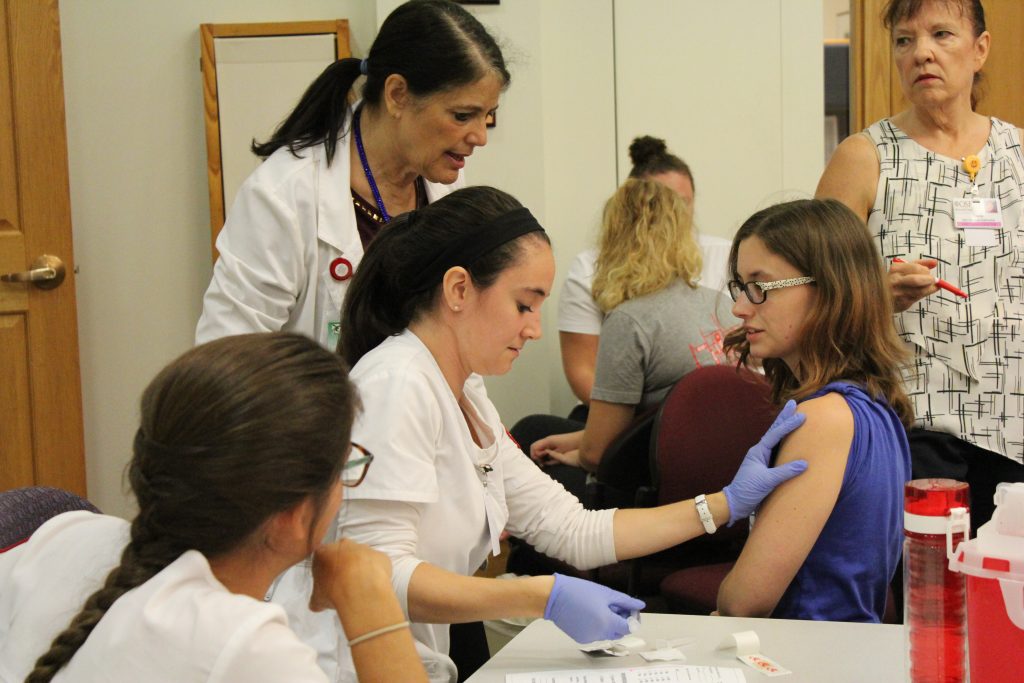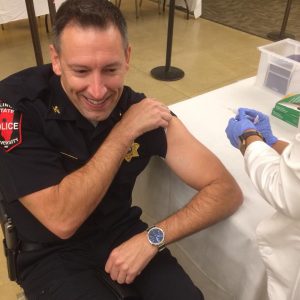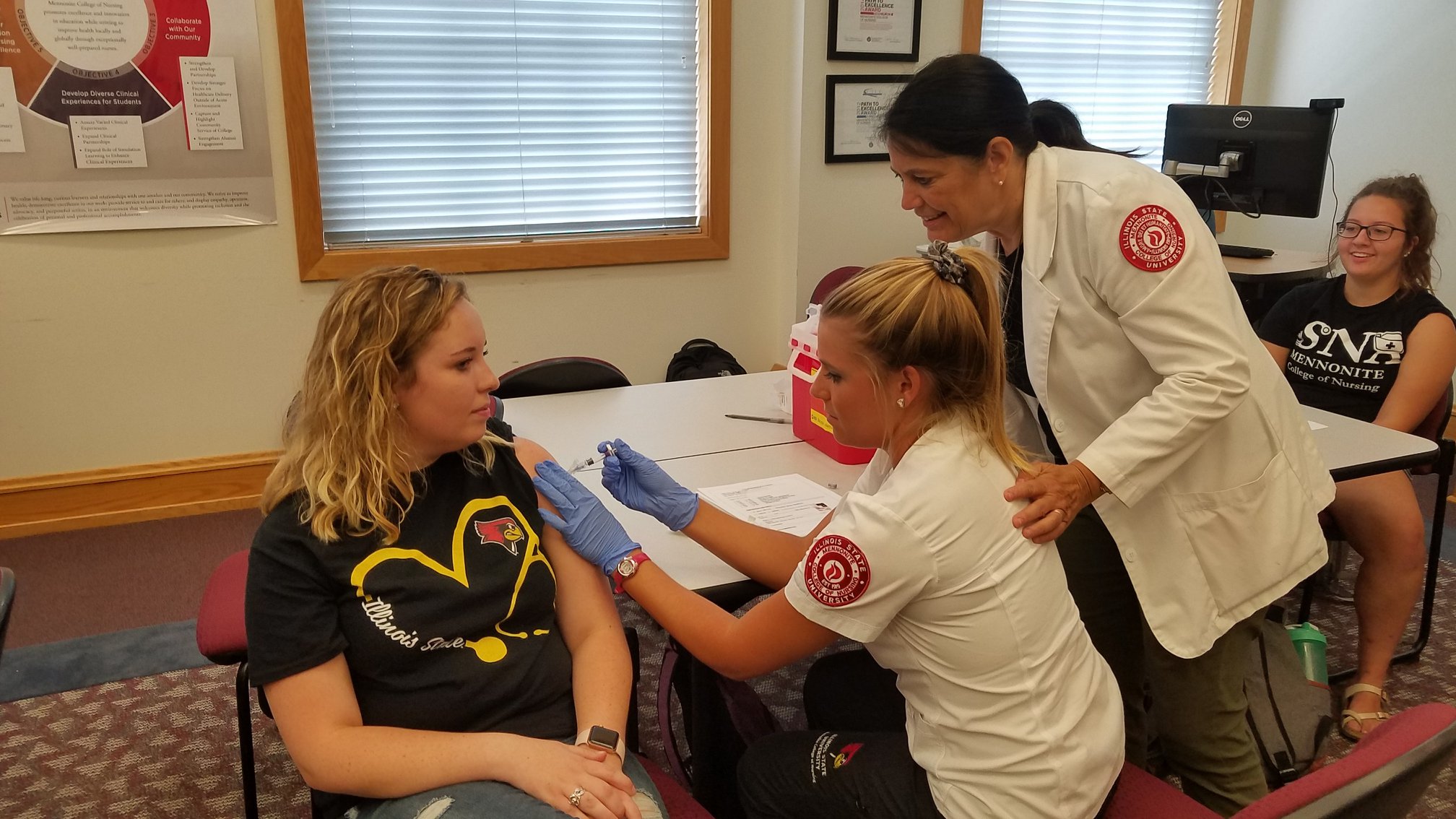“None of us, including me, ever do great things. But we can all do small things, with great love, and together we can do something wonderful.” – Mother Teresa
Collaboration
Collaboration is one of Illinois State University’s core values, and “Collaborate with our Community” is one of the five objectives in Mennonite College of Nursing’s 2018-2023 strategic map. It’s a word tossed around lightly at times—jargon—a trendy word that makes people feel good.
But what does it mean, really? And what does successful collaboration look like?
The best examples of collaboration involve people coming together and simply doing what is necessary to get things done. There is no angle—just people working hard for a common purpose. Most of the time, these collaborations fly under the radar and are difficult to spot from afar.
A shining example of partnership
The partnership between Illinois State’s Student Health Services (SHS) and Mennonite College of Nursing (MCN) embodies the University’s spirit of collaboration to its very core. It is a shining example of two entities coming together and working hard for the betterment of others—in this case, Illinois State students and the Bloomington-Normal community.

Nursing student administers a flu shot.
This partnership is not new; nursing students have had the opportunity to give flu shots in partnership with Student Health Services in a variety of ways for a while now. But in recent years, MCN and SHS have started offering mass immunization clinics.
“From our standpoint, this is a wonderful partnership because our nursing students get the opportunity to experience working with all sorts of different people in a rapid succession,” explained Mary Cranston, Instructional Assistant Professor at Mennonite College of Nursing and a core team member of MCN’s award-winning America’s Promise Schools Project. “Nurses learn to help people understand what would be a normal response to a flu shot and what would need more attention, and they practice the detailed documentation that they will be required to do as a professional.”
Being able to offer the clinics requires a lot of collaboration up front. MCN faculty and Student Health Services staff sit down to talk about the what, where, when, and why.
“As a campus community, we should be really proud of SHS for the services they provide, the efficiency of their staff, and their desire to develop and grow new nurses,” said MCN Dean Judy Neubrander. “Bobbie Stevens and Becky Ludolph are both excellent to work with. It takes a lot of strategic planning and detail orientation to pull off an event like this.”
The day of the clinics, the two teams work together on how to set up the room. Flow is an important part of a successful event.
Administering care in a large-scale setting

University Police Chief gets his flu shot at the Faculty/Staff Flu Clinic.
“In a large-scale setting, you have to be thoughtful about exposing other people because you may have individuals in the line who are actively ill. You also have to be thoughtful about how to protect privacy in a very public setting,” Cranston explained. “Large-scale health administration can be chaotic. This partnership gives our students valuable experience they might not be able to get anywhere else.”
Student Health Services supplies immunization equipment and support personnel to check forms and get people registered. MCN students handle the rest, with faculty members supervising each time a student administers a shot. Students learn how to deal with situations where a number of people all need services that are quick, efficient and effectively delivered. They learn how to be aware of the needs of the many while making sure they provide accurate, safe care to the one in front of them. SHS staff provide great role models of how to adapt to each client and situation.
The experience also counts as clinical hours through America’s Promise Schools Project—MCN’s award-winning pediatric and public health clinical experience.
“We love working with new nurses,” states Bobbie Stevens, Nursing Supervisor for Student Health Services. “The way we see it, we have the opportunity to help these new professionals on their journey while providing a service to our campus-community. Why wouldn’t we want to do that?”
In a given year, SHS-MCN mass immunization clinics service around 600 students, faculty, and staff. They provide students with valuable experience while also making Illinois State’s campus community safer and healthier. And that, folks, is the spirit of true collaboration: good people coming together, working hard, and making their world a bit better.
MCN is providing leadership in nursing—Learn more.
Our undergraduate programs
Our graduate programs

